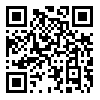recent decades, using valid and reliable questionnaires in the field of ego identity for research and individual assessment purposes has been addressed by psychologists. The aim of the present study was to investigate the validity and reliability of Extended Objective Measure of Ego Identity Status-2 (EOM-EIS-2) in high school students in Tehran. 234 students were selected randomly and the validity of the scales was studied on this Iranian sample in two ways: exploratory and confirmatory factor analysis. The exploratory factor analysis was carried out on the 50 percent of the sample that were selected randomly from all of the students and the confirmatory factor analysis was done on the rest of other 50 percents. The finding showed the both “ideological” and “interpersonal” identity of EOM-EIS-2 questionnaire had a four factor structure, as follows: Foreclosure, identity achieved, moratorium and diffused identity. The convergent-divergent validity of the four identity statuses yielded significant correlations between the same identity statuses of ideological and interpersonal identity and the correlation ranged from .38 to .65. The internal consistency of the four scales of the two ego identities were .46 for identity moratorium and diffusion in ideological identity and for the rest of them correlations ranged from .53 to .76. It is concluded that the EOM-EIS-2 scales had acceptable validity and reliability in an Iranian sample.
Received: 2015/02/15 | Revised: 2016/10/13 | Accepted: 2015/02/15 | Published: 2015/02/15
| Rights and permissions | |
 |
This work is licensed under a Creative Commons Attribution-NonCommercial 4.0 International License. |



